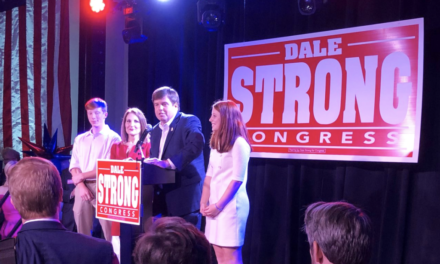Alabama librarians are still battling uncertainty about how to implement new policies to address “inappropriate” content.
In March, Gov. Kay Ivey mandated new library policies that include relocating “sexually explicit or other material deemed inappropriate for children or youth.” Initially, local libraries thought they may need to make changes as quickly as next month, but clarifying language arrived last week from the Alabama Public Library Service.
“Librarians have been told different things about dates and the impact these changes will make,” said Kate Etheredge, North Shelby Public Library director. “Until this memo came out, there was no official information or guidance on dates or who was responsible for deciding if our policies fit the criteria.”
Ivey’s changes to the state library code, which the Alabama Public Library Service board approved in May, provided a backdrop to the dozens of book challenges that conservative groups like Moms for Liberty, Eagle Forum, and Clean Up Alabama have launched in the last year.
Alabama Public Library Service director Nancy Pack told public library boards to submit updated policies to the APLS by June 30, 2025, to receive state funding.
The library service is making changes while also dealing with a nine percent budget cut, leaving six vacant staff positions at its Montgomery office.
“APLS is working hard to ensure that despite a nine percent decrease in our operating budget, we can still provide your libraries with quality services,” Pack said in the memo. She said she would make “difficult” decisions on how to deal with budget cuts, including programming.
Alyx Kim-Yohn, a circulation librarian with the Huntsville-Madison Public Library, questions if libraries will receive all funding if they turn in policies after the fiscal year begins July 1.
Kim-Yohn said the summer is one of the busiest times of the year for library workers, and that it’s difficult to also manage complaints from conservative groups.
“How many libraries will have to close all together if they can’t meet the letter of these changes?” Kim-Yohn asked.
Pack told AL.com that state funding requirements are more than updating policies. Boards must follow many rules, such as having the correct number of board members and meeting regularly.
In her memo, Pack made recommendations to library directors similar to her original correspondence last year with Ivey regarding inappropriate material for children.
“It is the parent’s responsibility to ensure minors follow library policies and standards,” Pack told the directors. “This includes overseeing unattended children, monitoring what children view when reading in the library and using technology, and applying restrictions on the circulation of materials.”
Pack added that library policies and guidelines “should reflect the library’s staffing and facility design” and “be made available to parents and minors who are old enough to understand what is acceptable in a public place.”
The memo informed library directors, “Newspapers and articles are not always accurate in their reporting.”
Pack told AL.com that board members John Wahl and Amy Minton, who frequently respond to media requests, don’t speak for the entire state library board.
“Confusion exists when other Executive Board members express their personal opinions to news outlets,” her memo stated.
Libraries can submit revised policies starting Sept. 1. Policies are due Dec. 1 to receive federal funding from the Institute of Museum and Library Services.
Because the APLS updated its state code, the institute is evaluating the APLS “to ensure we remain eligible to receive federal funds.” According to Pack, the IMLS typically approves funding in October.
The amendments to the approved code changes include written guidelines “that ensure library sections designated for minors under the age of 18 remain free of material containing obscenity, sexually explicit or other material deemed inappropriate for children or youth.”
Meanwhile, the Alabama Library Association and anti-censorship group Read Freely Alabama requested the Joint Legislative Committee reject code changes entirely. The groups contend a comment period needed to be added when the state board approved amendments to the code changes in May.
“The APLS started the process of rule changes and went through a comment period, but now they are erroneously amending the rules with new language that was not provided in the notice,” the request stated. “The stakeholders in the industry had no chance to review the new language, or ask questions and seek clarification before it was passed on May 16.”










